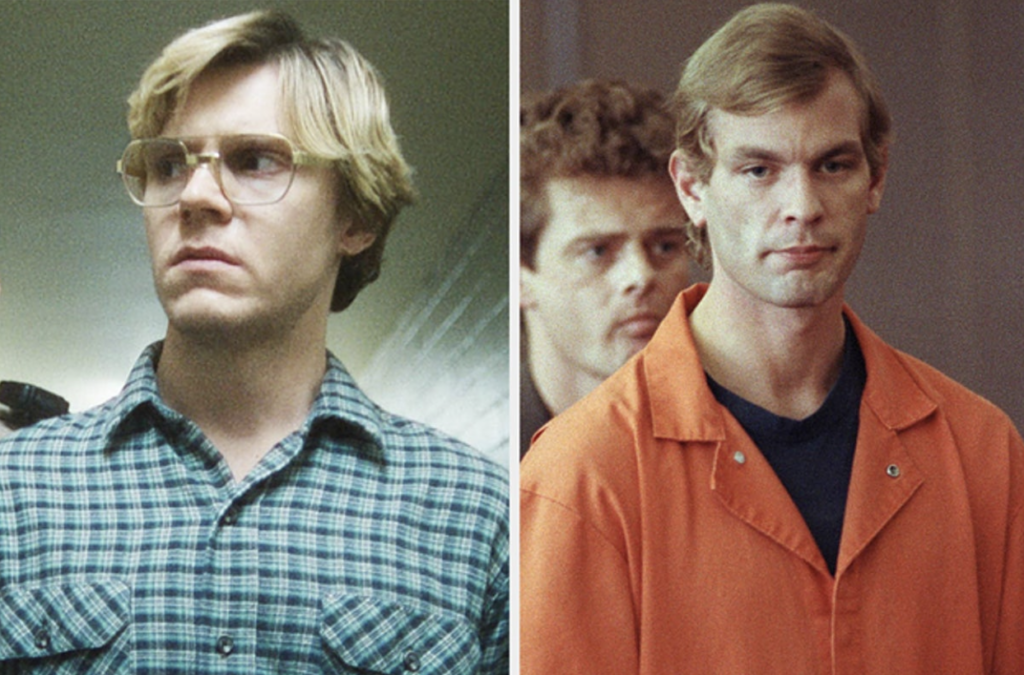Ethical Problems in Docu-Series

Courtesy of Buzzfeed
By Josie Ziemski
With the growing rise in popularity of documentaries, there is becoming a more clear separation between journalism and entertainment. Good documentaries have a balanced portion of both. Off the top of my head, some great ones I saw recently were: Keep Sweet: Pray and Obey, Long Shot, and Challenger: The Final Flight. However, as streaming services and even social media continue to grow, there are exponentially more documentaries focusing on entertainment value rather than for journalism’s sake. The two biggest examples of this are two Netflix originals: Extremely Wicked, Shockingly Evil and Vile, and Dahmer – Monster: The Jeffrey Dahmer Story. Interestingly, both are not marked as documentaries but are categorized as “true crime,” a distinction that I remain confused about, considering true crime insinuates a journalistic approach.
Considering that the dictionary defines documentaries as “a movie, or television or radio program that provides a factual record or report”, and since Netflix insinuates that everything that happens in these shows is true, then I believe you can classify these shows as documentaries. In almost all cases of problems that I have with documentaries such as these, it comes down to exploitation for the sake of fitting the narrative.
Both non-fiction docuseries are disturbing to watch because they depict the people in the story as though they are fictional characters rather than real people. However, these two documentaries are all reenactments coined as a true crime series, so it begs the question if they can take creative liberties and exaggerate aspects of the story. In my opinion: no, they can absolutely not change or exaggerate the story in any way.
In the case of the Ted Bundy documentary Extremely Wicked, Shockingly Evil and Vile they cast Zac Efron to play up the idea that women were essentially throwing themselves at Ted Bundy. In actuality, the truth was that he was an average man that could easily lure women with weakness and vulnerability because he looked so normal (i.e. he lured a woman to help him while faking a broken arm, offering to give lonely looking women rides, etc.). It leaves a bad taste in the mouth to think that the story Netflix was trying to tell was more important than the facts. Ted Bundy did not look like a movie star, he was an average guy that didn’t look like or act like anyone’s idea of a serial killer which is why he could evade police and even at one point escape police custody.
Netflix did the complete opposite for the documentary Dahmer – Monster: The Jeffrey Dahmer Story. They actually did a great job at portraying the timeline of events and Evan Peters did a phenomenal job at portraying Dahmer’s terrifying demeanor. However, that is just the problem, it was too accurate and begs the question, why did this get made? Did we need to see Tracy Edwards spend thirty minutes helplessly being handcuffed, posing for photos, forced to watch The Exorcist, and attempting to seduce Dahmer into letting him go – no, no we did not.
From a film making perspective, these scenes came across as being made for shock value rather than the filmmakers trying to actually explain what happened to Edwards in a respectful way. Fortunately, Tracy Edwards was one of the fortunate survivors that directly led to Dahmer’s arrest; however, being forced to sit through this very real account of what Edwards thought was his last moments left many viewers and I feeling sick.
His is just one of many instances of very real accounts of stories from survivors and Dahmer himself and the perfect example of documentaries becoming an odd morbid source of entertainment. I, myself, am a very big fan of true crime documentaries, however the line between respect and exploitation is becoming unclear. Documentaries surrounding serial killers and cold cases are not going away anytime soon because true crime has made people so desensitized to death and murder that people are willing to watch with enthusiasm and excitement as a man brutally kills and eats gay young men and children in Wisconsin, even if some of the events are exaggerated and slightly skewed to fit a narrative. Audiences are not watching out of respect for the victims and their families or some noble quest for the truth in journalism but to use it as some source of morbid and disturbing entertainment.
Documentaries should be held at the same ethical standards as journalism, especially in the case of true crime or any events where lives are still being affected. Documentaries will never lose popularity because of how successful these true crime documentaries and near reality show level premises are (i.e. shows like Tiger King, which is listed as a documentary). I believe a very real issue is just how commercial these shows are becoming. There is not a big push for journalism, even if it was the intent of the original filmmaker, because these documentaries are being distributed by streaming services, the company is looking at how much the film is making and how many subscribers are being brought in. So, of course they will release something that is in the gray-area of morality – because that is what people are watching. At this rate, we will become so desensitized to the content we consume that these “documentaries” that use journalism as a front to make money will twist our morality and values even more than streaming services already have.







